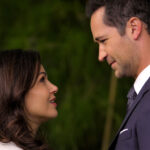Navigating the complexities of a high-profile trial can be challenging, and even seasoned legal professionals can experience moments of unexpected confusion. At internetlawyers.net, we understand the intricacies of courtroom procedure and provide insights into notable legal events. Let’s explore a specific instance from the Depp-Heard trial, offering clarity and understanding of legal objections and trial dynamics, shedding light on courtroom errors and legal mishaps.
This article aims to clarify the nuances of courtroom objections, with a focus on legal strategy, trial proceedings, and courtroom conduct.
Table of Contents
1. What Happened When Amber Heard’s Lawyer Objected to His Own Question?
2. What is Hearsay and Why is it Usually Inadmissible in Court?
3. Why Would an Attorney Object to Their Own Question?
- 3.1. Lack of Preparation
- 3.2. Unexpected Answer
- 3.3. Strategic Recalculation
- 3.4. Misunderstanding of the Law
4. What is the Role of a Judge in Courtroom Objections?
5. How Do Objections Impact the Jury in a Trial?
6. Notable Examples of Objection Mishaps in Legal History
7. What Were the Key Issues in the Depp-Heard Defamation Trial?
8. How Did the Media Cover the Depp-Heard Trial?
9. What is the Significance of Witness Testimony in High-Profile Trials?
10. How Can Internetlawyers.net Help You Understand Legal Processes?
11. Frequently Asked Questions (FAQ)
1. What Happened When Amber Heard’s Lawyer Objected to His Own Question?
In a surprising moment during Johnny Depp’s $50 million defamation lawsuit against Amber Heard, one of Heard’s attorneys, Adam Nadelhaft, objected to a question he himself had posed. Nadelhaft was questioning Ben King, Depp’s house manager, about the 2015 incident in Australia where Depp sustained a severed finger. Nadelhaft asked King if he knew what could have caused damage to Depp’s hand on March 8. After King began to answer that a doctor told him about Depp’s finger injury, Nadelhaft quickly interjected with an objection, citing “hearsay.” The judge, Penney Azcarate, responded, “Wait – you asked the question,” and overruled the objection, leading to a visibly awkward moment for the attorney and amusement from Depp and his legal team.
This incident underscores the fast-paced, often unpredictable nature of courtroom proceedings and highlights the importance of understanding the rules of evidence. The scene played out in front of the jury, adding another layer of complexity to the already highly publicized trial.
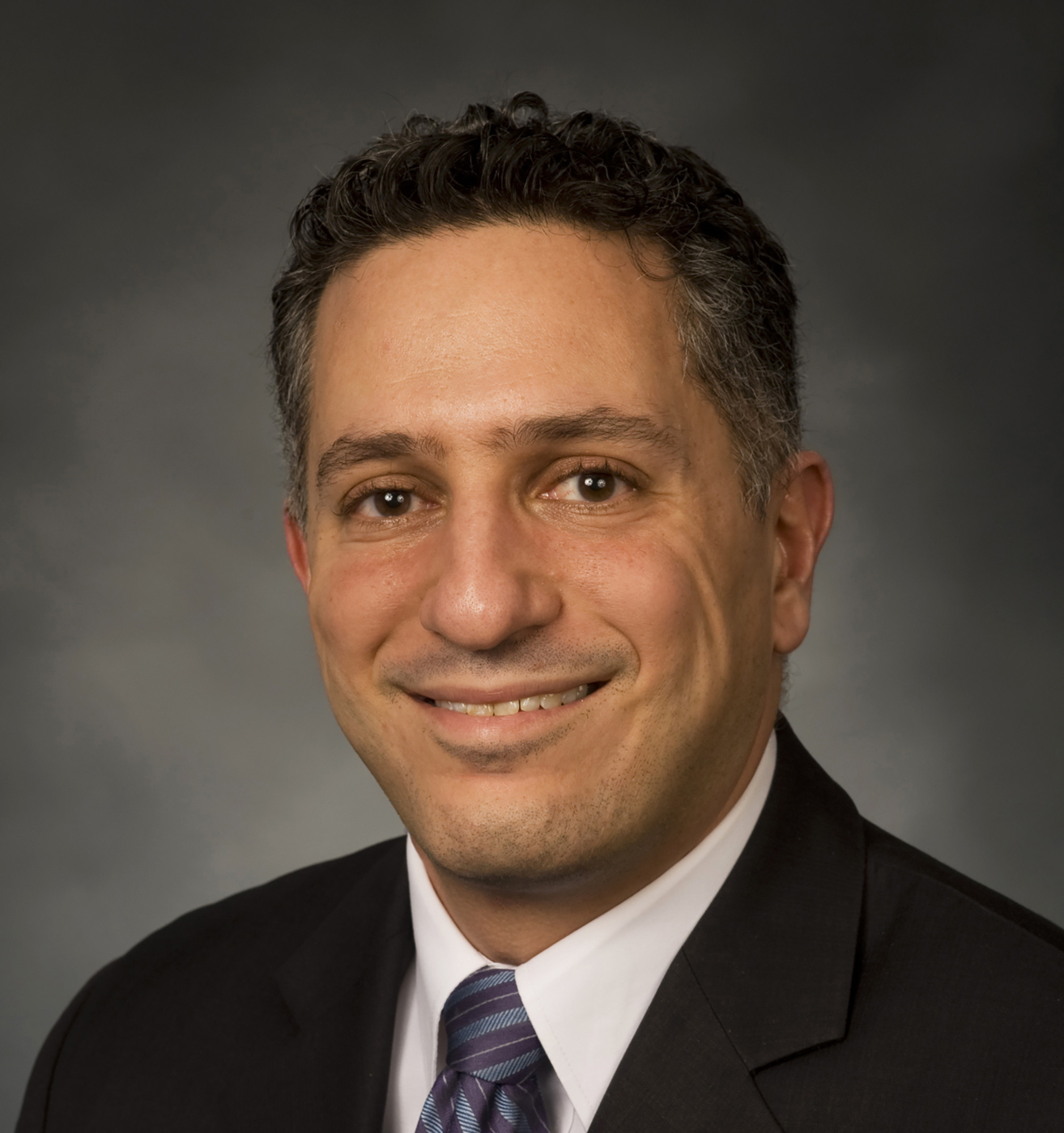 Adam Nadelhaft objecting to his own question during the Depp-Heard trial
Adam Nadelhaft objecting to his own question during the Depp-Heard trial
2. What is Hearsay and Why is it Usually Inadmissible in Court?
Hearsay is an out-of-court statement offered in court to prove the truth of the matter asserted. In simpler terms, it is testimony that repeats something someone said outside of the courtroom as evidence. Hearsay is generally inadmissible in court for several reasons:
- Lack of Cross-Examination: The person who made the original statement was not under oath and cannot be cross-examined to verify their truthfulness or accuracy.
- Potential for Misinterpretation: The statement may have been misinterpreted or taken out of context when repeated.
- Unreliability: The original declarant’s perception, memory, and sincerity cannot be assessed, making the statement unreliable.
There are numerous exceptions to the hearsay rule, such as statements made under duress, admissions by a party opponent, and certain business records. According to the Federal Rules of Evidence, Rule 803 and 804 outline these exceptions in detail. The rules aim to balance the need for relevant evidence with the necessity of ensuring fairness and reliability in legal proceedings.
According to research from the American Bar Association (ABA), understanding the nuances of hearsay and its exceptions is crucial for effective trial advocacy. In July 2023, the ABA reported that improper objections based on hearsay are among the most common errors made by attorneys in court.
3. Why Would an Attorney Object to Their Own Question?
An attorney objecting to their own question is an unusual occurrence that can stem from various factors. Here are a few potential reasons:
3.1. Lack of Preparation
Sometimes, attorneys may not fully anticipate the answer a witness will provide or may not be adequately prepared on the specific rules of evidence relevant to the questioning. This lack of preparation can lead them to realize, mid-questioning, that the answer could introduce inadmissible evidence.
3.2. Unexpected Answer
A witness’s response might veer in a direction the attorney did not foresee, potentially introducing hearsay, speculation, or other inadmissible material. In such cases, an attorney might object to their own question to prevent the inadmissible evidence from being considered.
3.3. Strategic Recalculation
In some instances, an attorney might realize that the line of questioning is not as beneficial as they initially thought. They might object to their own question as a way to cut off the questioning and redirect the focus of the examination.
3.4. Misunderstanding of the Law
Attorneys, especially those less experienced, may occasionally misinterpret the rules of evidence in the heat of the moment. Upon realizing their mistake, they might object to their own question to correct their error and maintain the integrity of the proceedings.
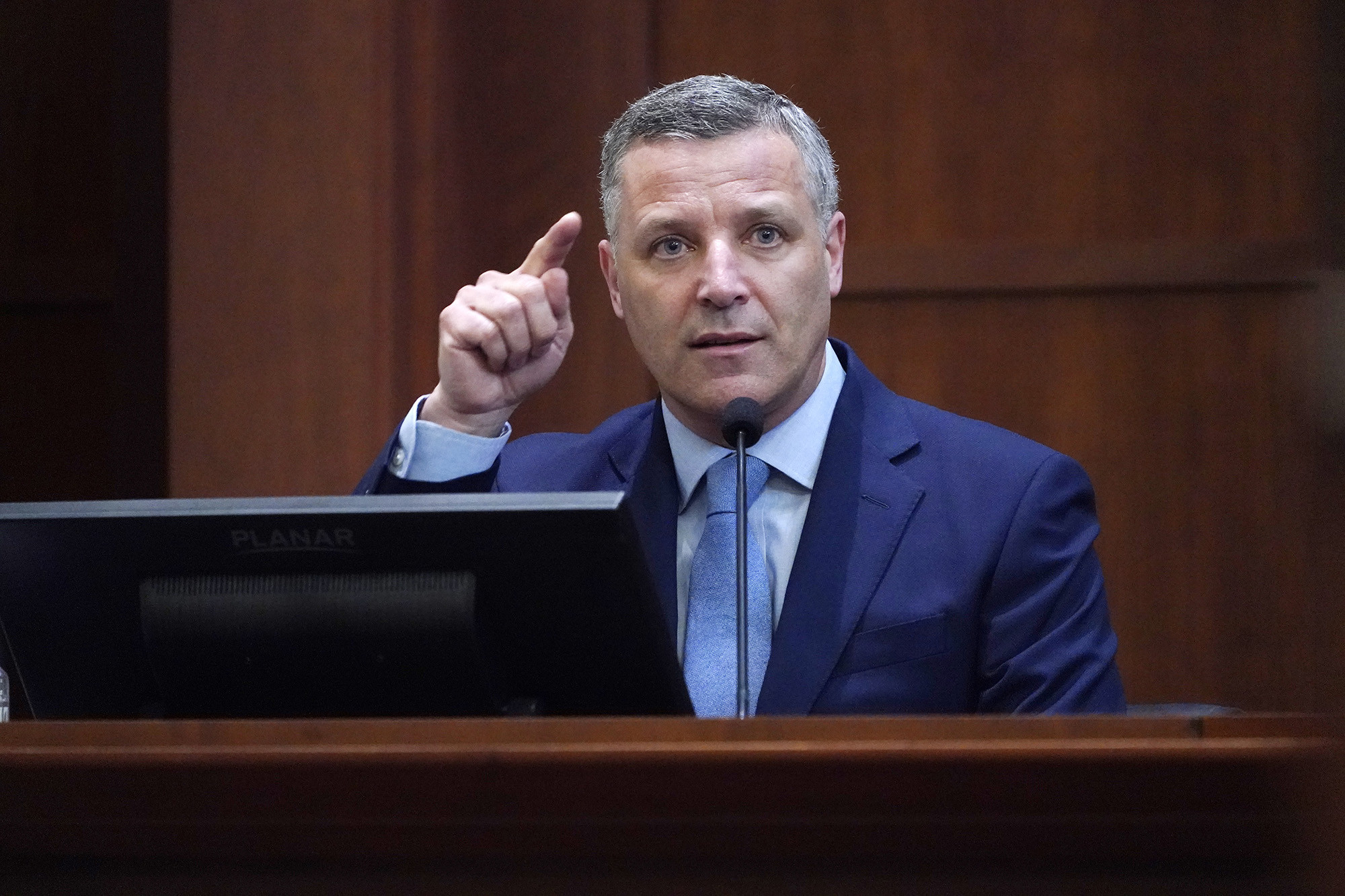 Ben King testifying at the Depp-Heard trial
Ben King testifying at the Depp-Heard trial
4. What is the Role of a Judge in Courtroom Objections?
The judge plays a crucial role in managing courtroom objections. Their responsibilities include:
- Ruling on Objections: The judge must decide whether to sustain (agree with) or overrule (disagree with) the objection. This decision is based on the rules of evidence and legal precedents.
- Maintaining Order: The judge ensures that the trial proceeds in an orderly and fair manner. This involves controlling the conduct of attorneys, witnesses, and spectators.
- Explaining Rulings: While not always required, a judge may explain the basis for their ruling, particularly if the issue is complex or if it helps the jury understand the proceedings.
- Protecting the Record: The judge ensures that all objections and rulings are properly recorded in the trial transcript. This is important for potential appeals.
According to the American Judges Association, judges must exercise impartiality and apply the law fairly when ruling on objections. Their decisions can significantly impact the outcome of a trial.
5. How Do Objections Impact the Jury in a Trial?
Objections can significantly influence the jury’s perception of the evidence and the overall case:
- Drawing Attention: Objections can draw the jury’s attention to specific pieces of evidence or lines of questioning, making them seem more important or controversial.
- Creating Doubt: Sustained objections can create doubt in the jury’s mind about the validity or reliability of certain evidence.
- Signaling Improper Conduct: Frequent or poorly made objections can signal to the jury that an attorney is being overly aggressive or is trying to hide something.
- Influencing Perceptions: The judge’s rulings on objections can influence the jury’s perception of the attorneys and the fairness of the trial.
Jurors are typically instructed to disregard evidence that has been objected to and ruled inadmissible. However, it can be challenging for jurors to completely ignore such evidence, especially in high-profile cases where emotions and media attention run high. According to a study published in the Journal of Empirical Legal Studies, jurors’ ability to disregard inadmissible evidence is often limited, and such evidence can still influence their decisions.
6. Notable Examples of Objection Mishaps in Legal History
While an attorney objecting to their own question is rare, other objection mishaps have occurred in legal history. Here are a few notable examples:
| Case | Mishap |
|---|---|
| Casey Anthony Trial | An attorney repeatedly made objections that were overruled, leading to the perception that they were trying to obstruct the presentation of evidence. |
| O.J. Simpson Trial | Objections were frequently used to challenge the admissibility of forensic evidence, leading to lengthy debates and increased public scrutiny. |
| Various Cases Involving Pro Se Litigants | Individuals representing themselves often struggle with making proper objections, leading to the admission of potentially damaging evidence. |
These examples illustrate how objections, when mishandled, can impact the course of a trial and influence public perception.
7. What Were the Key Issues in the Depp-Heard Defamation Trial?
The Depp-Heard defamation trial revolved around several key issues:
- Defamation: Johnny Depp sued Amber Heard for defamation based on an op-ed she wrote in The Washington Post in 2018, where she described herself as a public figure representing domestic abuse survivors. Depp argued that, although he was not named in the article, it clearly implied that he was the abuser, which damaged his reputation and career.
- Abuse Allegations: The central dispute was whether Heard’s allegations of domestic abuse against Depp were true. Depp denied the allegations and claimed that Heard was the abuser in the relationship.
- Impact on Career: Depp argued that the op-ed and the resulting publicity led to significant financial losses, including the loss of film roles and endorsements.
- First Amendment: Heard’s defense team argued that her op-ed was protected by the First Amendment, which guarantees freedom of speech. They contended that she had a right to share her experiences and opinions on domestic abuse.
The trial involved extensive testimony, video and audio recordings, and forensic evidence. It garnered significant media attention due to the high-profile nature of the parties involved and the serious allegations at stake.
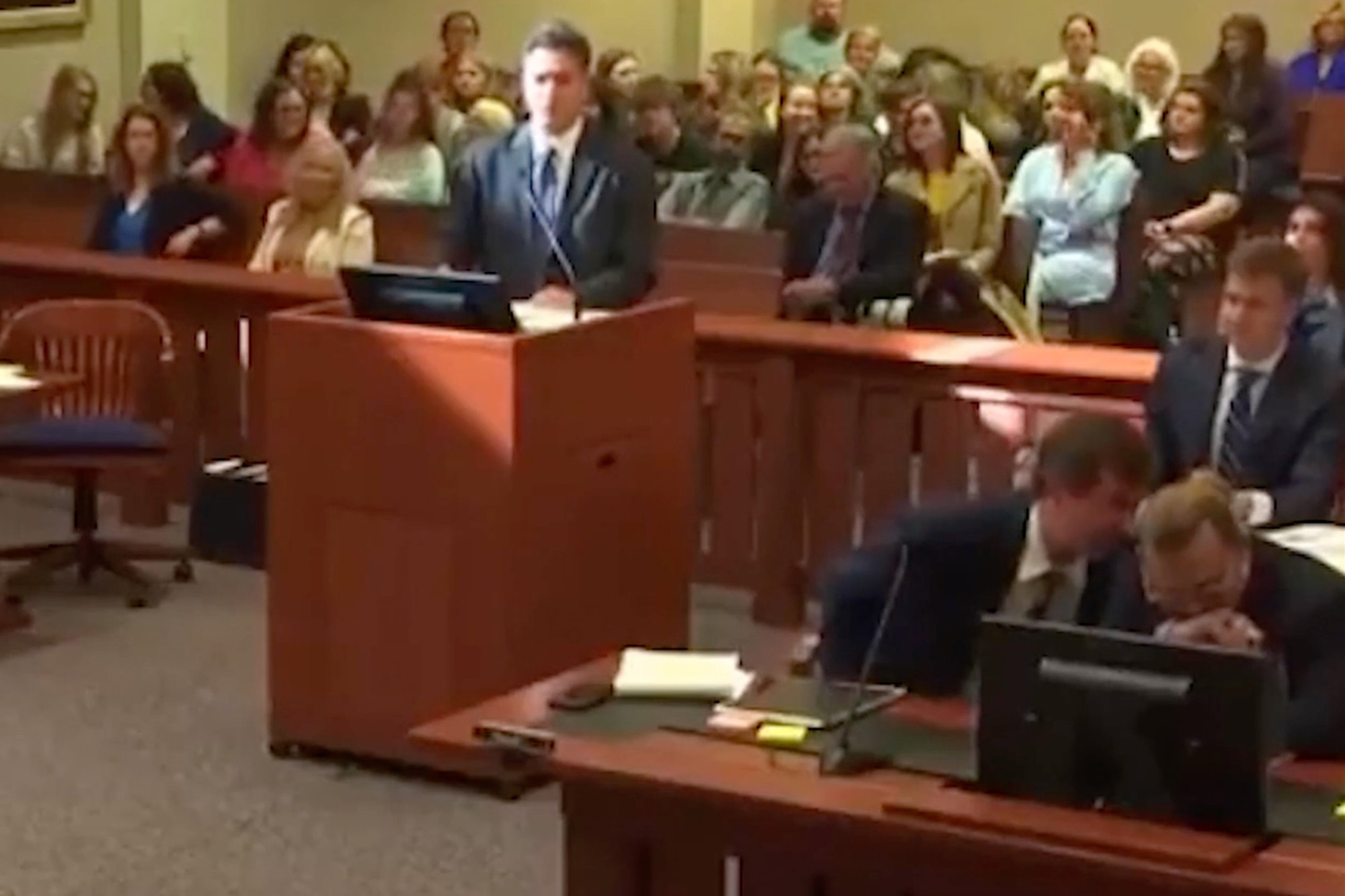 Johnny Depp at the Depp-Heard trial
Johnny Depp at the Depp-Heard trial
8. How Did the Media Cover the Depp-Heard Trial?
The Depp-Heard trial received extensive and often sensationalized media coverage:
- Live Streaming: The trial was live-streamed, allowing the public to watch the proceedings in real-time. This unprecedented access led to widespread commentary and analysis on social media.
- Social Media Frenzy: Platforms like Twitter, TikTok, and YouTube were flooded with clips, memes, and opinions about the trial. The hashtag #JusticeForJohnnyDepp became a rallying cry for Depp’s supporters.
- Celebrity Commentary: Numerous celebrities and public figures weighed in on the trial, further amplifying the media coverage.
- Bias Concerns: Some critics argued that the media coverage was biased in favor of Depp, with Heard facing disproportionate scrutiny and criticism.
- Impact on Public Opinion: The extensive media coverage significantly influenced public opinion, with many viewers forming strong opinions about the case based on what they saw and heard in the media.
According to a report by the Pew Research Center, the Depp-Heard trial was one of the most heavily covered legal events in recent years, demonstrating the media’s power to shape public perceptions of legal proceedings.
9. What is the Significance of Witness Testimony in High-Profile Trials?
Witness testimony plays a crucial role in high-profile trials:
- Establishing Facts: Witnesses provide firsthand accounts of events, which can help establish the facts of the case.
- Credibility: The credibility of witnesses is often a key factor in determining the outcome of a trial. Juries must assess whether witnesses are truthful, reliable, and unbiased.
- Expert Testimony: Expert witnesses provide specialized knowledge and opinions on technical or scientific matters. Their testimony can be crucial in cases involving complex evidence.
- Emotional Impact: Witness testimony can have a significant emotional impact on the jury, particularly in cases involving sensitive or traumatic events.
- Challenging Narratives: Effective witness examination and cross-examination can challenge existing narratives and reveal inconsistencies in the opposing party’s case.
In the Depp-Heard trial, witness testimony was central to both sides’ arguments. Witnesses included friends, family members, medical professionals, and forensic experts. Their testimony provided competing accounts of the events and behaviors at issue in the case.
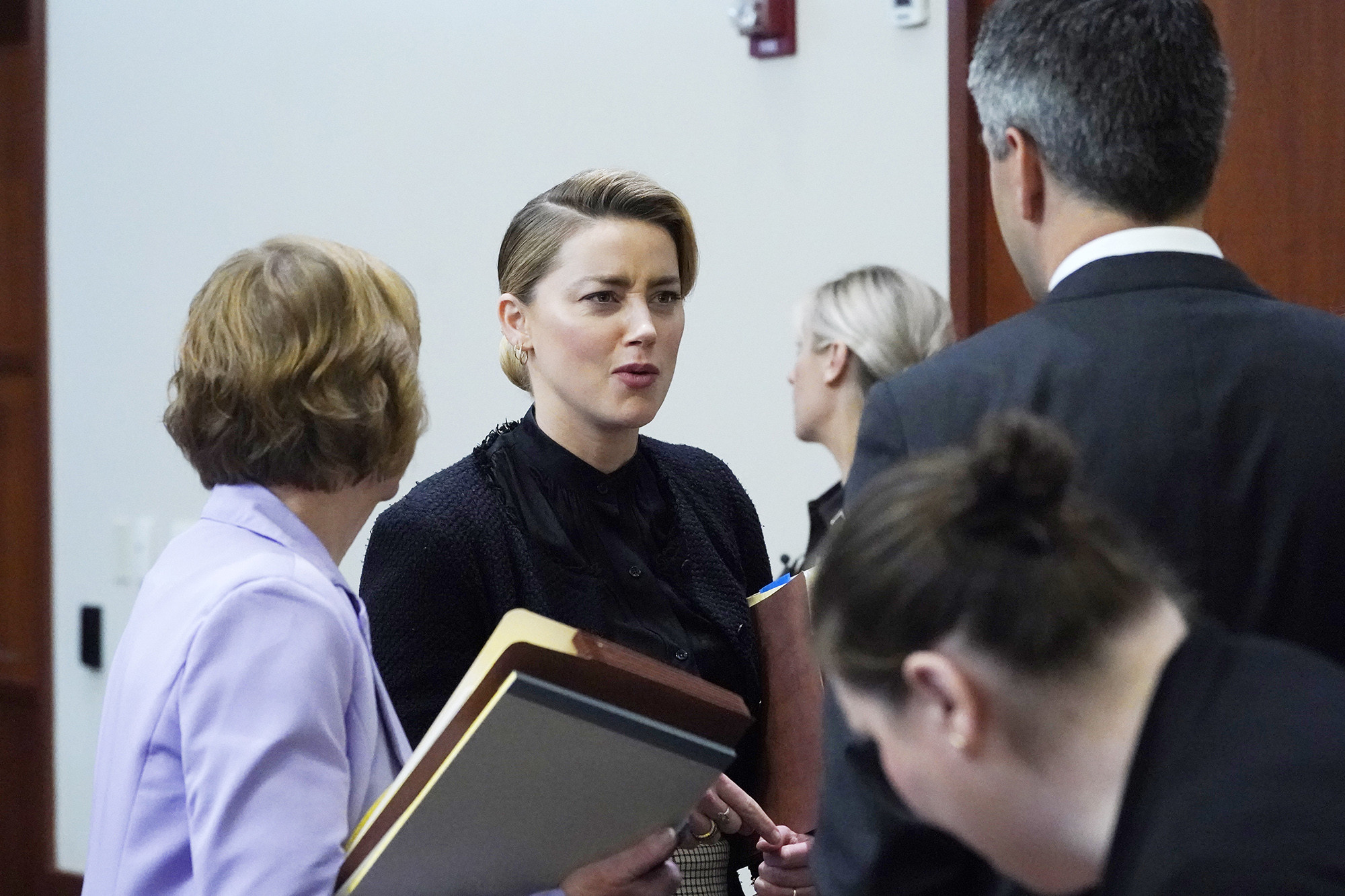 Amber Heard at the Depp-Heard trial
Amber Heard at the Depp-Heard trial
10. How Can Internetlawyers.net Help You Understand Legal Processes?
At internetlawyers.net, we strive to provide clear, accurate, and accessible information about various legal topics. Our platform offers:
- Informative Articles: We publish articles on a wide range of legal subjects, including courtroom procedure, rules of evidence, and high-profile cases.
- Legal Guides: Our guides provide step-by-step instructions and explanations on common legal processes.
- Attorney Directory: We maintain a directory of experienced attorneys across the United States, making it easy to find qualified legal representation.
- Legal Resources: We offer access to a variety of legal resources, including court documents, statutes, and legal news.
- Expert Analysis: Our team of legal experts provides analysis and commentary on current legal issues and developments.
Whether you are seeking to understand the basics of courtroom objections or need to find an attorney to represent you in a complex legal matter, internetlawyers.net is here to help. Our goal is to empower you with the knowledge and resources you need to navigate the legal system with confidence.
Address: 111 Broadway, New York, NY 10006, United States
Phone: +1 (212) 555-1212
Website: internetlawyers.net
Are you facing a legal challenge or simply seeking clarity on a legal matter? Don’t navigate the complexities of the legal system alone. Visit internetlawyers.net today to access our extensive resources and connect with experienced attorneys who can provide the guidance and support you need. We are committed to helping you understand your rights and options, ensuring you are well-prepared to make informed decisions.
11. Frequently Asked Questions (FAQ)
Q1: What is the definition of an objection in a legal context?
An objection is a formal statement made by an attorney during a trial or hearing, disputing the admissibility of evidence or the propriety of a question. It is a critical tool used to ensure fairness and adherence to the rules of evidence.
Q2: What happens when an attorney objects to their own question?
When an attorney objects to their own question, it typically indicates they realize the question could elicit inadmissible evidence. The judge will usually rule on the objection, potentially striking the question and any response from the record.
Q3: What is the role of hearsay in legal objections?
Hearsay is a common basis for objections. It refers to an out-of-court statement offered in court to prove the truth of the matter asserted, and it is generally inadmissible unless it falls under a recognized exception.
Q4: How can objections impact the jury’s perception during a trial?
Objections can draw the jury’s attention to specific evidence, create doubt about its validity, or signal improper conduct by an attorney. Jurors are instructed to disregard evidence that is objected to and ruled inadmissible, but its influence can be difficult to eliminate entirely.
Q5: What are some common grounds for making a legal objection?
Common grounds for objections include hearsay, relevance, speculation, leading questions (on direct examination), and lack of foundation.
Q6: How does a judge determine whether to sustain or overrule an objection?
A judge determines whether to sustain or overrule an objection based on the rules of evidence, legal precedents, and the specific circumstances of the case. The judge must exercise impartiality and apply the law fairly.
Q7: Why is it important for attorneys to be well-prepared on the rules of evidence?
A thorough understanding of the rules of evidence is crucial for attorneys to effectively present their case, protect their client’s interests, and avoid making errors that could jeopardize the outcome of the trial.
Q8: Can the outcome of a trial be appealed based on objection rulings?
Yes, the outcome of a trial can be appealed based on objection rulings if it is believed that the judge made incorrect decisions that significantly impacted the fairness and outcome of the proceedings.
Q9: What are some strategies attorneys use when making objections?
Strategies attorneys use when making objections include timing the objection to minimize the impact of damaging evidence, clearly stating the legal basis for the objection, and anticipating potential counterarguments from opposing counsel.
Q10: How can internetlawyers.net help individuals better understand legal processes?
internetlawyers.net provides informative articles, legal guides, an attorney directory, and expert analysis to help individuals understand legal processes, find legal representation, and navigate the legal system with confidence.

